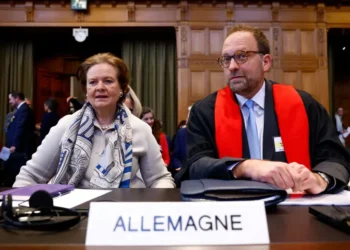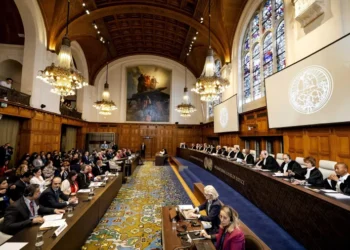The International Monetary Fund (IMF) has revealed that climate change is a systemic risk to the global economy which can pose financial risks especially for developing countries.
Additionally, a country’s vulnerability or resilience to climate change according to the International Monetary Fund can have a direct effect on its creditworthiness, its costs of borrowing, and, ultimately, the likelihood it might default on its sovereign debt.
“We find that the vulnerability and resilience to climate change have a significant impact on the cost of government borrowing, after controlling for conventional determinants of sovereign risk.
“Countries that are more resilient to climate change have lower bond yields and spreads relative to countries with greater vulnerability to risks associated with climate change”.
“Climate change vulnerability has no significant impact on bond spreads and credit ratings in advanced economies, but the effect on…developing economies is much greater”.
IMF
Elaborating further on the reason why the effect of these changes in climate are much greater in developing countries, the International Monetary Fund opined that it is as a result of their weaker capacity to adapt to and mitigate the consequences of climate change.
“Financial risks created by climate change are felt more acutely by developing economies, especially those that are not adequately prepared…because of the lack of policy space, to address climate shocks”.
IMF
The International Monetary Fund further noted that aside from having deep consequences for a country’s finances, a better understanding of how climate change affects sovereign credit ratings could provide valuable guidance on how much governments and firms can safely borrow and how much it will cost them.
“We find that countries with greater vulnerability to climate change face a higher likelihood of debt default compared to more climate resilient countries.
“Our empirical results also indicate that climate change resilience can decrease the probability of sovereign debt default compared to those countries more vulnerable to climate change, after controlling for conventional determinants of sovereign defaults”.
IMF

The International Monetary fund therefore holds that it is imperative for countries to take concrete steps to build resilience to climate change because “without adequate action, climate change is an inevitable reality across the world. Rising temperatures, changing weather patterns, melting glaciers, intensifying storms and rising sea levels undoubtedly create vulnerabilities, especially in low-income countries”.
As countries seek a sustainable path of recovery from the effects of the COVID-19 pandemic, the benefits of climate resilience are clear. In particular, developing economies with limited fiscal capacity could benefit from alternative instruments including catastrophe insurance and debt-for-nature swaps designed to mobilize resources for investments in resilient infrastructure and environmental conservation measures while reducing the debt burden, the IMF alerted.
Meanwhile, pursuing cost-effective climate change mitigation and adaption strategies; building structural resilience to climate risks, including through resilient infrastructure; strengthening financial resilience through fiscal buffers and insurance schemes; and improving economic diversification to reduce excessive reliance on climate-sensitive sectors can ease the strain of climate change on public finances and reduce the cost of borrowing associated with lower credit ratings.




















